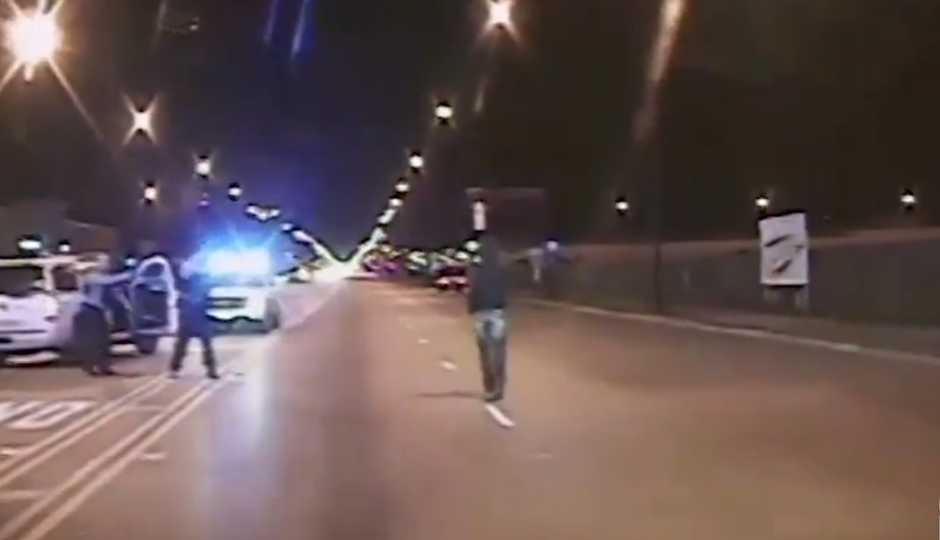Don’t Let What Happened to Laquan McDonald Happen in Philadelphia

Laquan McDonald, seconds before he was shot.
If you’re a Pennsylvanian who is angry about what happened in Chicago with Laquan McDonald, you should be furious with what legislators in Harrisburg are trying to do.
McDonald, if you’re unaware, was a 17-year-old black teen who was shot to death during an encounter with police a year ago. Police said that McDonald, armed with a knife, lunged at them. A video released last week shows that actually, McDonald was stepping away from police at the time he was shot. The video shows bullets hitting his body long after he hit the ground.
The good news? The officer who shot McDonald — 16 times, by the way, emptying his gun — will face criminal charges. The bad news? Those charges weren’t brought until just before the video was released, some 400 days after the shooting. The video was released only because a judge ordered it; there’s every reason to believe the officer might not’ve been charged without the video’s publication to the world.
Public scrutiny, it seems, works.
What’s this have to do with Harrisburg?
A committee in the Pennsylvania House just a few weeks ago gave unanimous thumbs-up to a bill that would make it illegal for officials to publicly identify police officers involved in shooting incidents — at least until the official investigation into the matter has been concluded. The bill has the backing of the Fraternal Order of Police, which started pressing for it after Philadelphia Police Commissioner Charles Ramsey announced this year he would identify officers within 72 hours of such shootings. The FOP says such info puts cops’ lives at risk.
“To have a city administration and a commissioner who wants to release information simply to satisfy the public just doesn’t make sense,” FOP President John McNesby said last week.
The problem with this bill, of course, is that it begins to erode the public’s ability to scrutinize the actions of the police that serve us. In the post-Ferguson era of police reform, the bill contravenes an essential element of restoring police-community relationships in Philadelphia, Pennsylvania and beyond: Simple transparency.
Consider how public involvement and disclosure affected two recent cases involving Philadelphia police.
•In February, brutality charges were brought against two officers who brutally beat Najee Rivera during a 2013 traffic stop; but it wasn’t the police investigation that brought the brutality to light — indeed, it was Rivera who initially faced criminal charges. But his girlfriend unearthed surveillance video from a nearby store that showed the officers were at fault in the incident.
• Similarly, police stuck to the same story about last December’s Brandon Tate-Brown shooting for months: That Tate-Brown was reaching into the passenger side of his car toward a gun when officer Nicholas Carrelli shot him. Video released by the city in June showed that Tate-Brown was actually running around the back side of his car when he was shot. It wasn’t until videos and investigative files from the case were made public that the police revised the story — raising questions that will ultimately be addressed in the federal lawsuit being brought by Tate-Brown’s survivors.
Would having officer names released within 72 hours of those incidents made a big difference? Not necessarily. But these incidents reveal how important public scrutiny can be in unearthing the truth about these kinds of encounters. The bill currently before the Legislature undermines the the ability of the public to begin to seek those truths. For that reason, it should be rejected.
Now: The reason police are advocating for this bill is because they believe public identification puts officers in danger. Ramsey points out there have been no problems so far. But I’ve previously suggested a middle ground — waiting a week to identify officers, unless the investigation is wrapped up sooner than that.
Public scrutiny works. It’s probably the main reason the family of Laquan McDonald stands a chance of getting justice. It’s not too late for Harrisburg to stop heading in the wrong direction.
Follow @JoelMMathis on Twitter.


